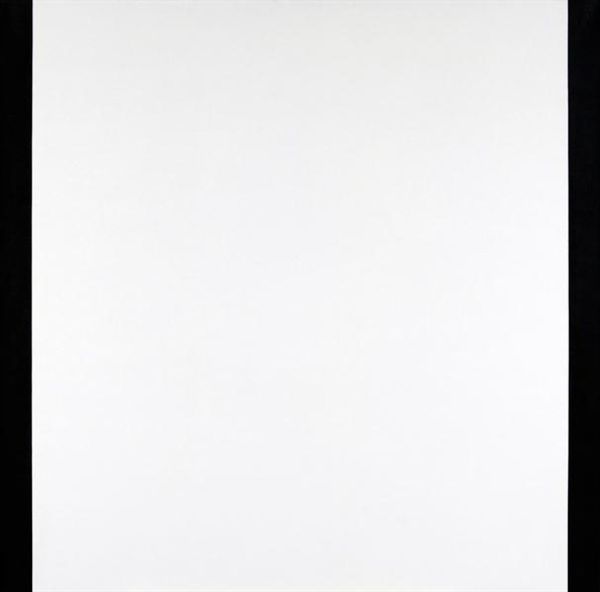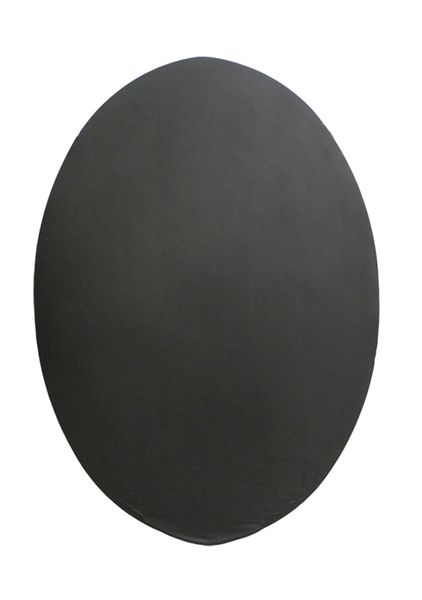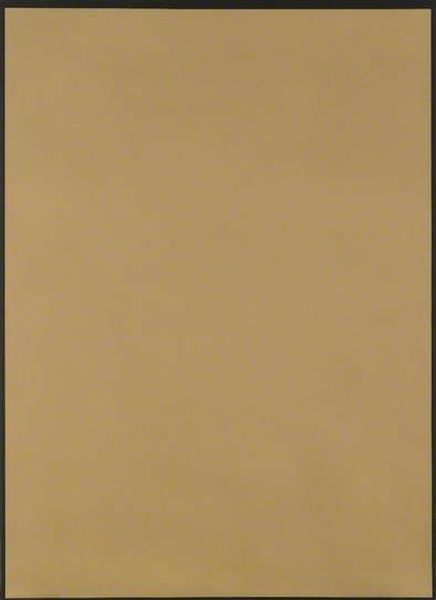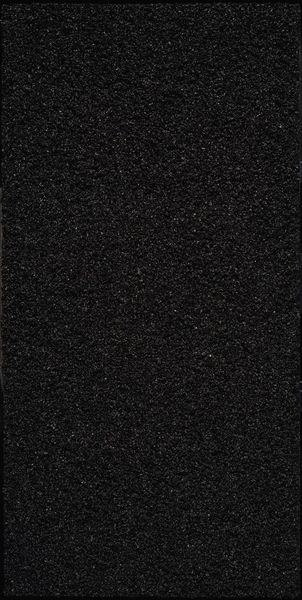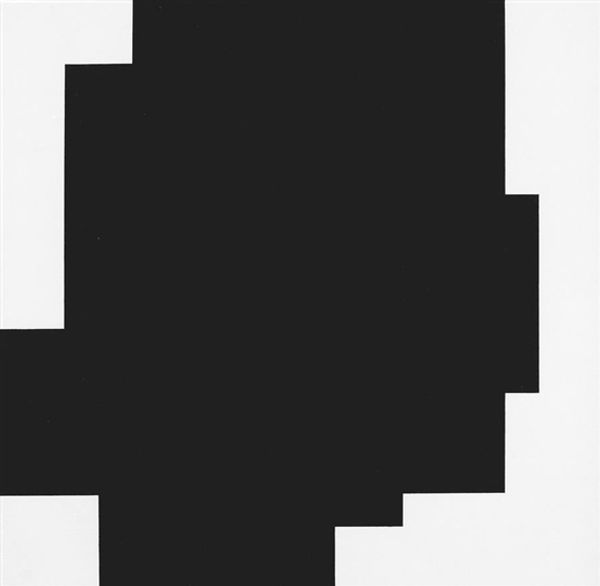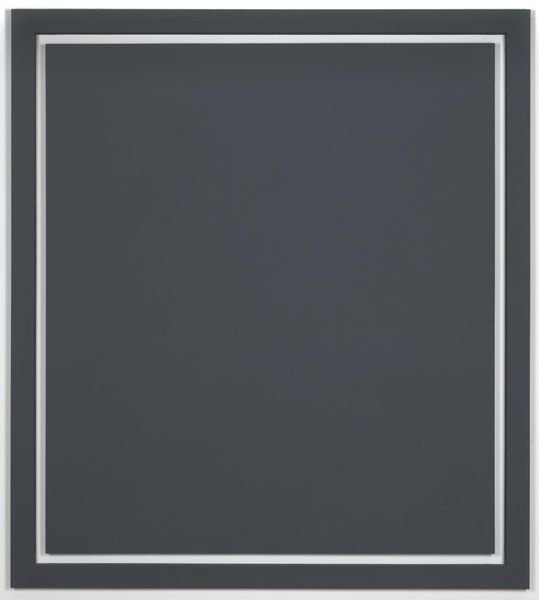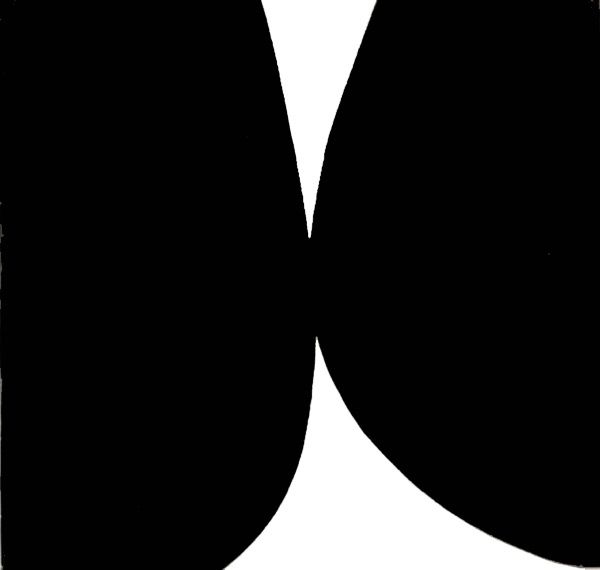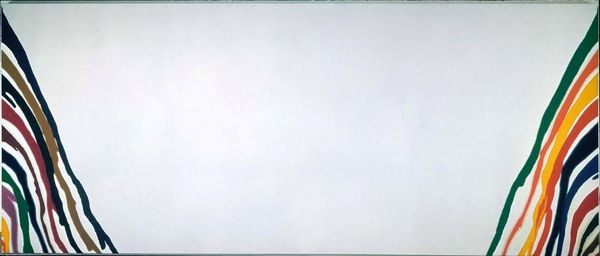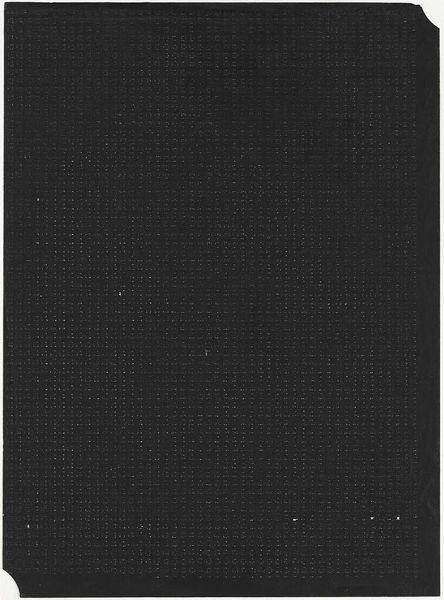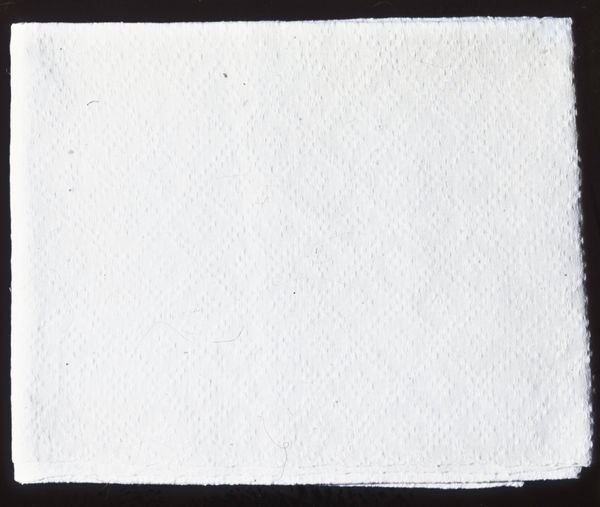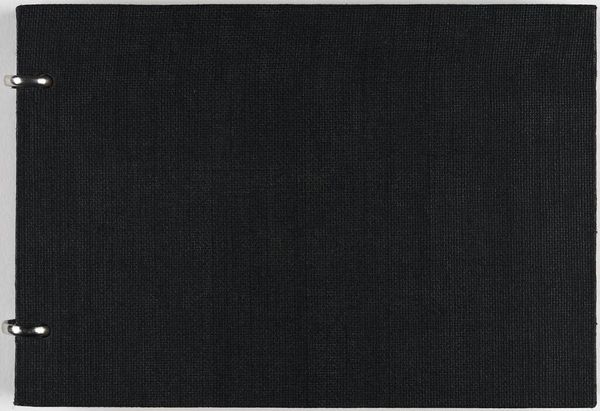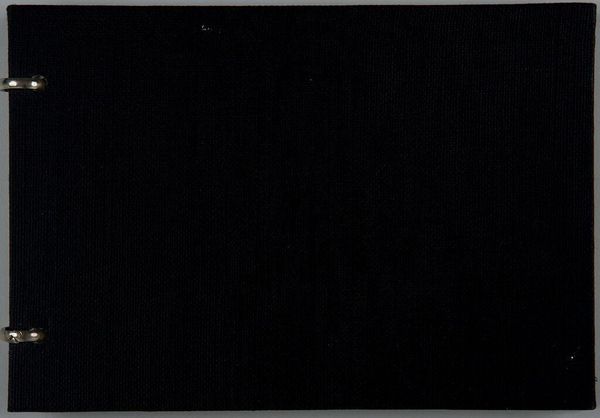
acrylic-paint
#
abstract-expressionism
#
op art
#
acrylic-paint
#
form
#
abstraction
#
line
#
hard-edge-painting
#
monochrome
Copyright: (c) Ellsworth Kelly, all rights reserved
Editor: We're looking at Ellsworth Kelly's "Black Ripe" from 1955, made with acrylic paint. It's just…a large, somewhat rounded black shape against a white background. It feels so simple, almost stark. What do you make of it? Curator: Its simplicity is deceiving, isn’t it? Consider the sociopolitical context of 1955. Abstract Expressionism was dominant, overflowing with angst and grand gestures. Kelly, however, takes a different path, influenced by his time in post-war France. Editor: How so? Curator: He focused on observation. Instead of conveying inner turmoil, he aimed to capture the essence of observed forms. His paintings, like “Black Ripe,” pull from everyday shapes – a shadow, a building fragment. Kelly removes any evidence of the artist's hand, and thus challenges the art world expectations that placed importance on gestural brushwork. How do you feel that challenges or expands upon the existing notions of art from this period? Editor: It definitely feels like a conscious reaction, doesn’t it? A turn away from emotional drama and toward…well, what exactly is it toward? Curator: I’d argue it's a movement toward democratization of form. He finds art in the commonplace, suggesting that anything can be worthy of attention, thus subverting traditional art values. Is the artwork then for the elite and intellectuals or for everybody? What are the social implications of that accessibility? Editor: That makes a lot of sense. So, by presenting this simplified form, he's not just creating an image, but engaging in a broader cultural dialogue. Curator: Exactly. By questioning existing power structures through imagery, Kelly provides a vital socio-political commentary and helped set the stage for Minimal Art. Editor: I hadn’t thought about it that way. It seemed like just a shape, but it is very culturally loaded now. Curator: Isn't that often the case? Understanding the context truly enriches the work.
Comments
No comments
Be the first to comment and join the conversation on the ultimate creative platform.
